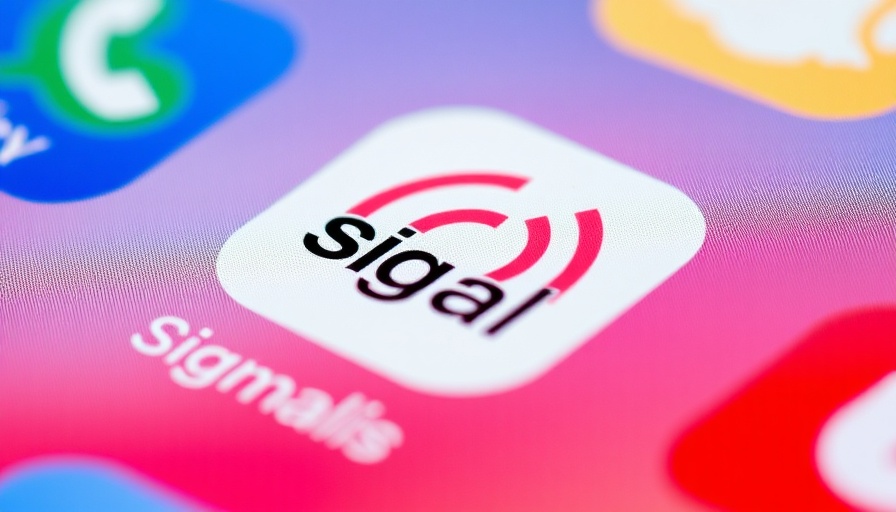
Understanding the Signal Controversy: Government Officials and Messaging Apps
In recent weeks, the use of Signal, a popular encrypted messaging app, by government officials has come under fire, particularly following an incident involving journalist Jeffrey Goldberg. This incident exposed a group chat that included high-level members of the Trump administration, revealing sensitive national security plans. The circumstances surrounding this revelation raise critical questions about the channels used for government communications and the protocols that should govern them.
Keeping Secrets in the Digital Age
In an era where transparency is paramount, the balance between operational security and public knowledge can often become blurred. Jamil Jaffer, founder of the National Security Institute, highlights a significant concern: if government officials are resorting to apps like Signal for sensitive communications, it prompts questions about the adequacy of the available secure communication options.
The Encrypted Dilemma
While Signal's encryption offers a degree of safety, critics argue that government officials should be utilizing more secure communication systems specifically designed for classified information. Jaffer's statement, "Why doesn't the government have a [Sensitive Compartmented Information] rated version of this?" illustrates a crucial issue. If government protocols don't meet modern security needs, should officials be expected to operate within clear security guidelines? This situation clarifies how adapting to evolving technologies is necessary for safeguarding national security interests.
The Fallout: Accountability in the Administration
The implications of the Signal group chat scandal extend beyond just the initial breach of security. National Security Adviser Mike Waltz’s admission of mistakenly including a journalist in a critical discussion raises questions about accountability and responsibility. How can government officials ensure sensitive information is only shared with appropriate parties? This incident highlights the broader issue of maintaining control and diligence in communication practices within the government.
A Closer Look: The Ethics of Information Sharing
Former national security officials have strongly contended that the chat's content was classified, adding layers to the ethical considerations of sharing sensitive information via a third-party app. This has ignited debates on the ethical implications of transparency versus secrecy within governmental operations.
The Future of Secure Communication
As technology advances, so too must government communication strategies. Moving forward, securing sensitive discussions in a digital environment requires the implementation of advanced security measures tailored to meet the needs of national defense. The question remains whether government officials will adapt to these demands or if incidents like the Signal scandal will lead to cautions within the administration.
Lessons Learned: Reassessing Communication Security
Effective communication in the digital age requires constant reassessment of tools and methods. Communication practices have to adapt to new challenges and threats that arise with digital platforms. The Signal controversy serves as a pivotal moment for lawmakers to reconsider existing protocols, ensuring that they align with current technological realities and national security standards.
The Role of Emerging Technologies in National Security
As new communication platforms emerge, national security policies must incorporate the need for more identifiable secure methods. The reliance on third-party apps like Signal raises questions about technology's role in governmental oversight and the implications it may bring. Exploring alternative solutions, such as government-approved secure communication platforms, could be steps toward preventive measures in managing sensitive information.
In summary, the controversy surrounding the use of Signal by government officials not only underscores the implications of communication security but also poses significant questions about ethical governance and technological adaptation. As we navigate these uncertain waters, it's crucial to engage actively in discussions about secure channels in our digital age.
 Add Row
Add Row  Add
Add 




 Add Row
Add Row  Add
Add 








Write A Comment